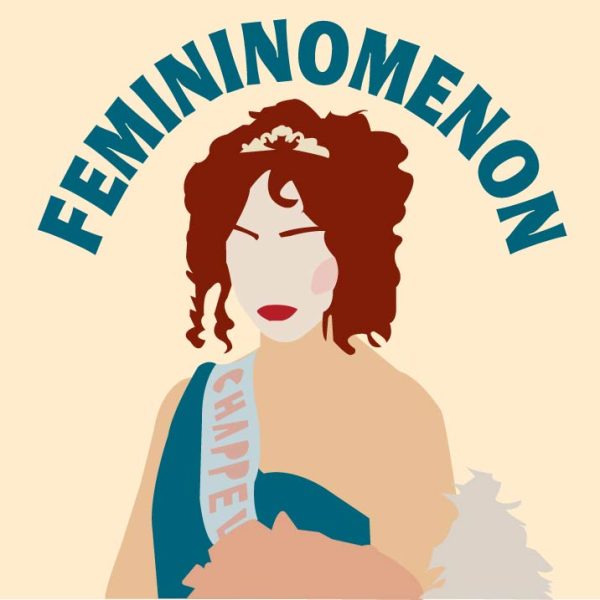Last Friday, Chappell Roan released a press statement on Instagram setting boundaries for her fans and discussing the uncomfortable truths of stardom — especially for women. While predatory behaviors towards women are not a new issue in Hollywood, Roan’s statement sparked discourse among fans, posing a crucial question: Why are these boundaries so important?

Known for songs like “Hot to Go!” and “Good Luck, Babe!”, Roan is a singer-songwriter from Missouri who recently blew up on social media. Before the past few months, Roan was a relatively small artist, opening for bigger names like Olivia Rodrigo. Almost overnight, however, she rose in the charts; after she started trending, she played possibly the largest Lollapalooza set of all time. Naturally, one cannot help but wonder: What is the reason for her rise to stardom?
On Sept. 22, 2023, Roan released her first studio album entitled “The Rise and Fall of a Midwest Princess” — an obvious nod to David Bowie’s “The Rise and Fall of Ziggy Stardust.” Like Bowie, Roan draws inspiration from the 80s synth-pop genre, yet she adds her own touch, incorporating aspects of LGBTQ+ performance art such as drag. Despite her recent rise to popularity and cultural importance as a queer icon, however, last week’s press statement sparked controversy among some of her fans.
Since attracting such extreme attention, Roan experienced predatory fan behavior, telling her audience on TikTok about stalkers who have publicly harassed her and stalked her family members. After that initial TikTok, Roan started to face backlash on the app, leading to her lengthier, final statement about the topic on Instagram. In the post, she sets firm boundaries, saying, “I’ve been in too many nonconsensual physical and social interactions and I just need to lay out and remind you, women don’t owe you s***. I chose this career path because I love music and art and honoring my inner child, I do not accept harassment of any kind because I chose this path, nor do I deserve it.”
While simply setting forth her boundaries, Roan’s statement has been controversial not only for her forceful language, but because some believe her words to be naive. After Friday’s post, creators criticized Roan’s boundaries for ignoring the realities of Hollywood and what fame entails, claiming that harassment just “comes with the job” and that if she wants to make it in the industry, she has to accept that.
This notion is problematic for a number of reasons. While predatory behavior is certainly normalized in stardom, this does not mean that stars, especially women, need to be complicit in it. Since Hollywood’s beginnings, there has been a long history of women being victims of harassment and violence at the hands of their fans. A prime example is Selena Quintanilla’s murder in 1995. Shot by the president of her fan club when she agreed to meet her privately, Selena’s death was avoidable. Extreme violence like murder is rare, of course, but general forms of harassment can be daily experiences for famous women in public and on social media. Despite Roan’s critics calling her naive, the history of violence perpetrated by fans in Hollywood tells us otherwise, illustrating the power of her decision to speak out.
This is not to say that male stars do not face these problems. The biggest difference lies in the ways that men and women are treated in the media. An example of this double standard is when Eminem released his song “Stan” as a response to his experience with obsessive fans. While taking a more creative approach than Roan, he communicated a similar message. However, Eminem’s “Stan” was met with a very different response than Roan’s statement: it was praised and is regarded as his best work. By contrast, when female stars speak out against obsessive fans, they are often called “ungrateful” and are seen more negatively, as we have seen this past week with Roan.
Those quick to cancel Roan for last Friday’s statement are exactly what is wrong with the media’s treatment of women. Rather than criticizing her and being complicit in sexist double standards, we should be supporting her for her bravery and rightful decision to set boundaries. To quote Roan herself, “what we really need is a ‘Femininenomenon,’” and she is exactly that, empowering a new generation of women who are not afraid to make their voices heard.



